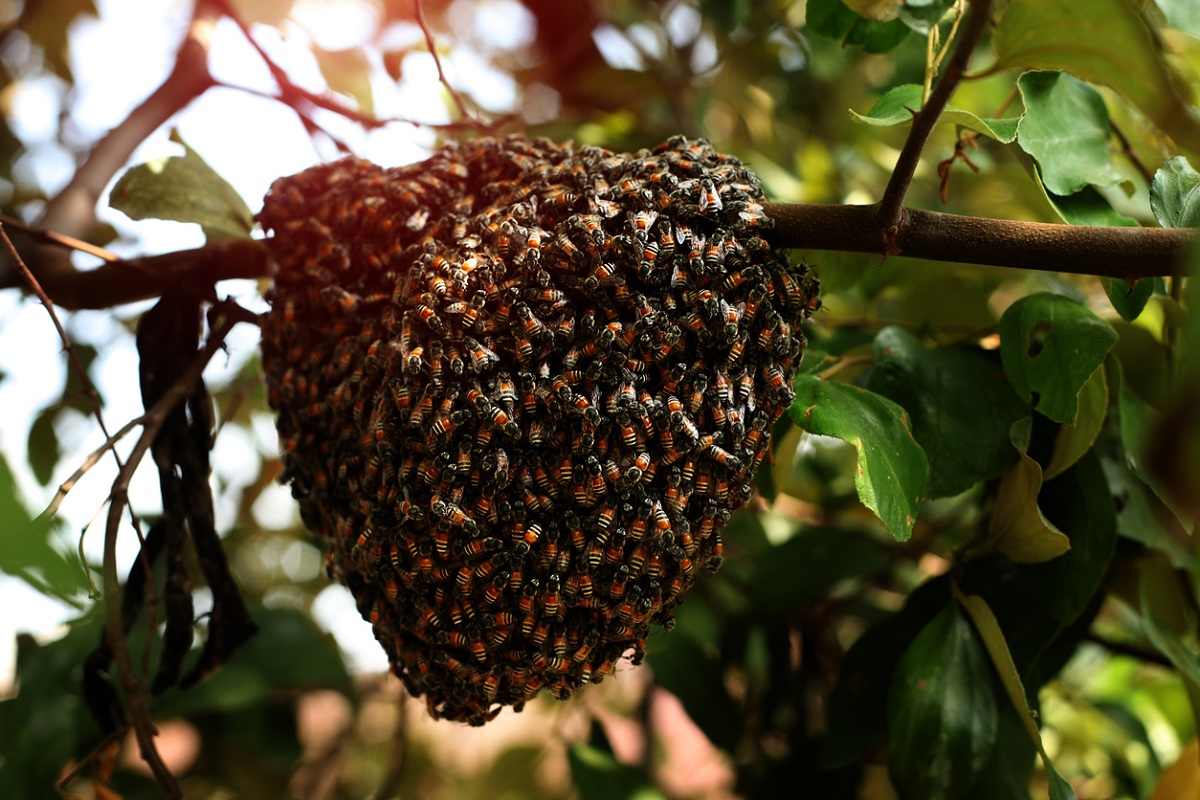Bihar CM presents appointment letters to over 51,000 teachers
Bihar Chief Minister Nitish Kumar presented appointment letters to 51,389 teachers at the historic Gandhi Maidan in Patna on Sunday.
There are primarily two types of bees—the queen bee that lives in the honey bee colony and is the mother of most of the bees and worker bees whose prime responsibility is to collect nectar from flowers.

Bees dying due to cell phones (Representational Image: iStock)
Well, you may be aware of millions of migrant workers turning jobless due to the long spell of lockdown, but any idea about the “worker bees” also going “unemployed” at this time?
Sounds weird, but the fact is that the worker bees, who are responsible for collecting nectar from plants such as mango, litchi, mustard flowers and mahua have been left “jobless” as the flowering season of most of these fruits and plants is over and the labourers who can relocate the beehives to places from where they can collect nectar are missing.
Advertisement
Bihar produces around 20,000 metric tonnes of honey every year.
Advertisement
There are primarily two types of bees—the queen bee that lives in the honey bee colony and is the mother of most of the bees and worker bees whose prime responsibility is to collect nectar from flowers. In Bihar, the ideal period of honey production is between February and May.
Right from the start of autumn when the flowering season starts, the bee-keepers start keeping the beehives in various orchards and fields to let the bees collect nectar. These boxes have to be relocated time to time to let the bees get food for survival but due to the enforcement of the lockdown, a majority of these boxes have not been relocated from the mango and litchi orchards even though the flowering time is long over and the fruits are ready to be sold in the market.
As a result of which, the bees have not only got completely “unemployed” but they are also facing a severe food crisis. Agriculture experts said if the beehive boxes are not relocated soon, the bees will start dying from hunger which will result in a drastic fall in honey production. According to an official report, currently, there are about 50,000 bee-keepers in Bihar while the number of beehive boxes stood at five lakh.
According to an estimate by the agriculture department, the honey production may fall by 50 per cent due to the failure to relocate these boxes. Erratic climatic conditions have already adversely affected the silently-going “sweet revolution” in the state. A senior researcher from the Bihar Agriculture University, Sabour (Bhagalpur) said this year honey bees were unable to collect nectar from plants and trees as nectar generation fell sharply due to abnormal temperature.
Advertisement